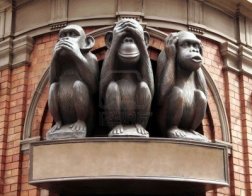Mainstream economics in denial We’d gathered at Downing College, Cambridge, to discuss the economic crisis, although the quotidian misery of that topic seemed a world away from the honeyed quads and endowment plush of this place. Equally incongruous were the speakers. The Cambridge economist Victoria Bateman looked as if saturated fat wouldn’t melt in her mouth, yet demolished her colleagues. They’d been stupidly cocky before the crash – remember the 2003 boast from Nobel prizewinner Robert Lucas that the “central problem of depression-prevention has been solved”? – and had learned no lessons since. Yet they remained the seers of choice for prime ministers and presidents. She ended: “If you want to hang anyone for the crisis, hang me – and my fellow
Topics:
Lars Pålsson Syll considers the following as important: Economics
This could be interesting, too:
Lars Pålsson Syll writes Schuldenbremse bye bye
Lars Pålsson Syll writes What’s wrong with economics — a primer
Lars Pålsson Syll writes Krigskeynesianismens återkomst
Lars Pålsson Syll writes Finding Eigenvalues and Eigenvectors (student stuff)
Mainstream economics in denial
We’d gathered at Downing College, Cambridge, to discuss the economic crisis, although the quotidian misery of that topic seemed a world away from the honeyed quads and endowment plush of this place.
Equally incongruous were the speakers. The Cambridge economist Victoria Bateman looked as if saturated fat wouldn’t melt in her mouth, yet demolished her colleagues. They’d been stupidly cocky before the crash – remember the 2003 boast from Nobel prizewinner Robert Lucas that the “central problem of depression-prevention has been solved”? – and had learned no lessons since. Yet they remained the seers of choice for prime ministers and presidents. She ended: “If you want to hang anyone for the crisis, hang me – and my fellow economists.”
What followed was angry agreement. On the night before the latest growth figures, no one in this 100-strong hall used the word “recovery” unless it was to be sarcastic. Instead, audience members – middle-aged, smartly dressed and doubtless sizably mortgaged – took it in turn to attack bankers, politicians and, yes, economists. They’d created the mess everyone else was paying for, yet they’d suffered no retribution …
Yet look around at most of the major economics degree courses and neoclassical economics – that theory that treats humans as walking calculators, all-knowing and always out for themselves, and markets as inevitably returning to stability – remains in charge. Why? In a word: denial. The high priests of economics refuse to recognise the world has changed.
In his new book, Never Let a Serious Crisis Go to Waste, the US economist Philip Mirowski recounts how a colleague at his university was asked by students in spring 2009 to talk about the crisis. The world was apparently collapsing around them, and what better forum to discuss this in than a macroeconomics class. The response? “The students were curtly informed that it wasn’t on the syllabus, and there was nothing about it in the assigned textbook, and the instructor therefore did not wish to diverge from the set lesson plan. And he didn’t.”

